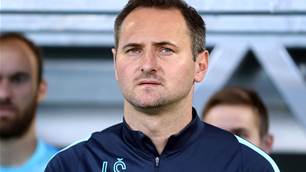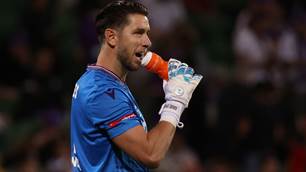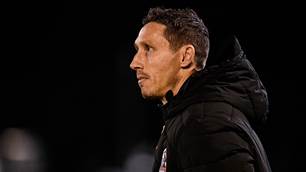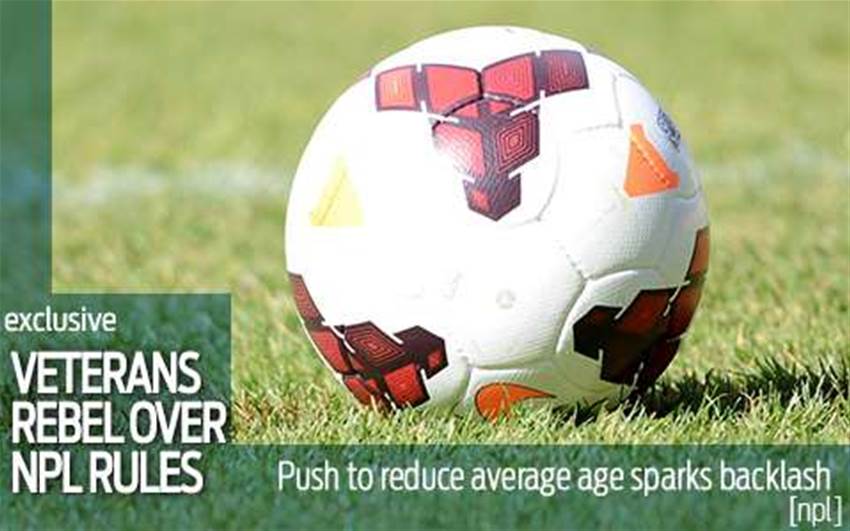A BATTLE has erupted between Football West and some of the State’s senior players over the future direction of football.
Newly-formed players group, Footballers Association of Western Australia (FAWA) has accused the federation of squeezing experienced players out of the game.
The governing body has returned fire, portraying FAWA as unrepresentative, unrealistic and living on past glories to the detriment of young footballers.
Battlelines have been drawn over visa players, the player payment system, insurance options and lack of player consultation in the roll-out of the National Premier League.
But the chief sticking point is the NPL player point system which is weighted in favour of young, Australian and locally-developed footballers.
FAWA argues that the 250 point cap will starve the game of some of its most celebrated players and lead to a decline in on-field standards.
The federation maintains it will stop clubs clogging their rosters with overseas signings and veterans in the twilight of their playing careers. Some clubs currently have eight visa players and one has 11. The limit has been set at four.
Last week Football West expressed optimism in the NPL format, naming 12 WA clubs to take part in the national second tier competition in 2014.
But FAWA organiser Robbie Gaspar says the players have been overlooked.
Gaspar, who played in the NSL and spent 10 years plying his trade in Asia, said 26 of 32 clubs responded positively to a FAWA petition calling for player representation at federation meetings.
He told au.fourfourtwo.com: “There’s a club standing committee, a referees' standing committee, a juniors' standing committee – why isn’t there a players' standing committee?
“Players are a really important part of the game and everyone has to work together if we’re going to move forward.”
According to FAWA, 10 of the 12 clubs they studied were well over the compulsory player points cap suggesting a major shake-up of rosters next year.
“We think if you’re good enough you play,” Gaspar said. “You’ve got a lot of really good boys who have come back from overseas or from playing in the A-League and I think they’ve got a lot to offer.
“You’ve got the likes of Andy Todd, Todd Howarth and Jamie Coyne who have come down and really want to give back to the game. But [the points system] makes it very difficult for them.”
Any system that makes it “too easy” for young players will be detrimental to the game, he said.
The NPL player points system and visa player limit are criteria set by Football Federation Australia.
On the subject of representation, Football West chief executive Peter Hugg said there was nothing stopping current players nominating for the board. Eight of the current members are ex-players.
But he added FAWA – a “self-voted” group of about 20 players – was committed to the interests of elite footballers who accounted for just one per cent of the state’s 37,000 player base.
Hugg said he fully supported the points system: “If you’re a younger player that’s been developed by a club and are Australian, you will benefit and will be rewarded.
“You won’t find a 35-year-old blocking your way or someone who is here as a backpacker or 457 visa from Ireland who is a bit mercenary and just goes around the country.
“This is all about looking after good young local up-and-coming players. It’s better for the clubs, cheaper, better for the Socceroos and Young Socceroos.
“We currently have a 39-year-old running around on Saturday – that person brings a lot of experience at international level to the game. We want that person. What we don’t want is six or seven of them in the one club.”
Gaspar, who is still on the board of the Indonesian Players' Association, warned that that cap on visa players would decrease the standard of football and reduce the number of people attending games.
And he criticised the introduction of a “salary cap” for failing to include trade-offs for players such as access to coaching education or better insurance.
Football West operates under the National Insurance Scheme organised by FFA.
The federation said a $70,400 maximum per season spend on players was also introduced at the urging of clubs to ensure long-term sustainability.
According to Hugg the real problem lies with former elite players struggling to adjust to the realities of State league football.
“The income is not there, the gate-takings are not there, the sponsorship is not there, there is no TV or broadcasting rights, so you have a very small income,” he said.
“The likes of Robbie and a number of these other players are ex-A-League players or ex-internationals and they come back into our amateur league – the bright lights and the stars and the fans and all that have gone – and they’re still putting their hand out for similar amounts of money.”
FAWA denies players are being mercenary.
“We’re saying to Football West - you’ve got the salary cap in place...where’s the benefit for the players?” Gaspar added.
“Whether it be improving the insurance for the players, whether it be free coach education, encouraging them to coach at their clubs, helping them to give back to their club and being more engaged with their club.
"Everyone wins in that situation.”
Related Articles

'Up to the players': Croatia deny spying trip for A-League, NPL youngsters

Socceroo ruled out for A-League season, retirement likely as Glory sign NPL replacement













